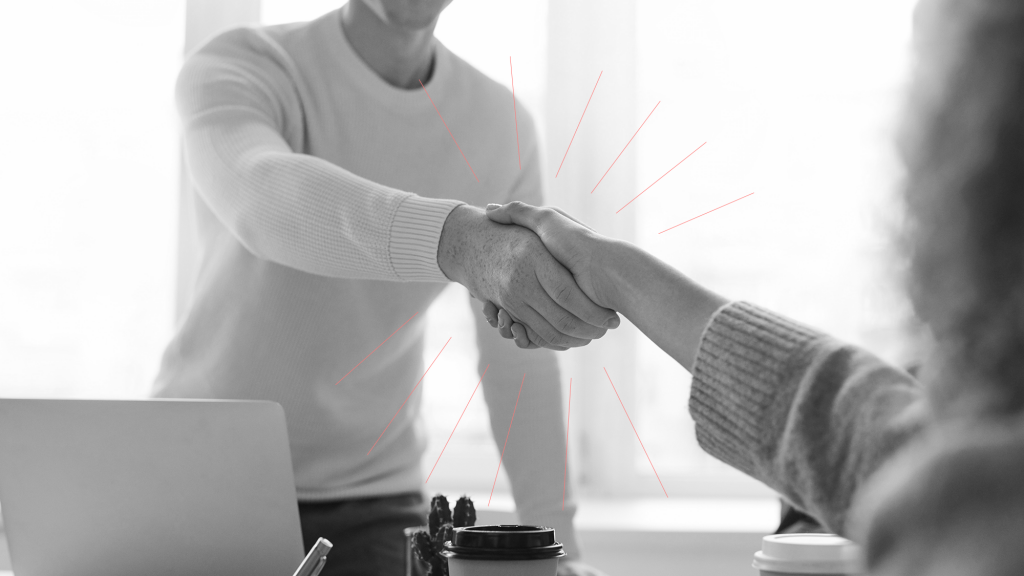Precious things we take for granted are disappearing from our regularly scheduled programming: transportation, handshakes, events that spur economic progress and, most importantly, toilet paper.
While debates rage over what should and shouldn’t be done in response to the Covid-19 outbreak, I’d simply like to shine a spotlight on one impact that’s not receiving so much attention.
Let’s talk about the importance of meeting other humans in person.
I’m not talking about human contact in a ‘feel- warm-fuzzies’ sort of way. What I mean to point out are the practical, measurable differences you get from physical versus virtual interactions.
Let’s take this column, for example. I’ll give you two possibilities on how I was selected to write it.
Only one of these is true.
Option A: The editor of this magazine happened upon my writing online and, after reading several of my articles, decided I had the ability to contribute something insightful and amusing on a regular basis in these pages.
Option B: The same editor and I told each other stories over brown liquor when we met at a jazz club in Nashville, Tennessee, and I tricked him into thinking I was interesting and mildly intelligent and could therefore write.
The answer? Well, it isn’t Option A.
In face-to-face meetings like that outlined in Option B, we humans pick up deeper information than we do by scanning text.
Phone and video conferences give us a better ‘read’ on a person, but even there, we can still miss a lot. In fact, recently, when I met several people in person for the first time, I came away feeling like I’d barely known them before, even though we’d actually been communicating for years.
So what other tangible things does this change? For one, when you’re able to better understand a person, you know better what you can trust them with, and how far.
Deeper levels of trust equate to more deals, and therefore, more economic activity.
I learned this in my first job out of college: My boss and I flew to Germany to meet with a client and prove the latest version of a thing worked flawlessly.
It was strongly implied that the dinner meeting the night before our demonstration of this machine was far more important than the demo itself.
I don’t think I’d ever felt more social pressure to drink in my life. “You will have another drink,” said the client. And I did.
Side note: we won the contract.
Today, running my own optical engineering company, I find in-person meetings even more vital.
As it turns out, they’re key to nudging along languishing timelines. A ‘We’ll call you when we need you’ might never happen. However, if I tell a prospective client that I’m passing through town and can meet them in person, it suddently becomes an event.
Deeper levels of trust equate to more deals, and therefore, more economic activity
This event must happen at a particular time, if it’s to happen at all, and so, it’s more likely to occur.
It also serves as a ‘gemba walk’ for me – an essential part of the Lean management philosophy, whereby managers visit a site where work is actually taking place.
I get to see up close the problems with prototypes, parts, test equipment, and sometimes the engineers themselves.
This always gives me more of the details that I need to help my clients than I could pull out of them over the phone. Also, it almost always results in me learning that the real problem is not the problem they told me about.
Before closing on a contract, however, we have to first find each other. Here, as well, I find attending MeetUps, conferences and other gatherings to be essential. Point blank, I can’t build a sustaining client base without them.
Cold messages and cold calls have had a 0% success rate in bringing in new clients.
Less than 5% of my client pool find me from online searches.
The vast majority come via engineers who I once drank beers with at some nerd gathering.
That’s why, for over four years, I have lived out of a backpack, travelling 100% of the time. Some people think I do it for fun, but those people are wrong. I’m tired, but it’s necessary.
Today, I sit in Austin, Texas, where my original intention was to provide press coverage for the now- cancelled South by Southwest (SXSW) festival.
And yet, as those of us stranded here get together to talk in person, organising ways to partly
salvage our investments, extraordinary things start to happen.
I’m told about, or directly given, opportunities that I wouldn’t otherwise have known about.
News from those in the know travels through us before it hits headlines days later. Other secrets and the most honest opinions you wouldn’t dare see in writing get spilled.
When I start to think about it, it’s difficult to accurately number the advantages to these physical meetings, simply because there are so many.
One thing we still lack is the ability to judge each other based on handshake quality. Instead, we resort to bumping elbows as a greeting.
Hopefully, one sunny day in the future, we’ll meet again in person and learn which of us have hands like dead fish.
Then, we can ruthlessly cut those untrustworthy weirdos from our social circle and share more fuel for economic growth with those who remain.
*This article was written prior to the strict social distancing rules currently being enforced in the UK
Get in touch:
Erin M McDermott is director of optical engineering at Spire Starter and a digital nomad (read: vagrant).
She travels the world meeting hardware engineers who don’t know that things using light (cameras, LED illumination, LiDAR, laser processes etc) need competent design, optimisation and tolerancing, just like the rest of their widget. Get in touch at spirestarter.com or @erinmmcdermott






